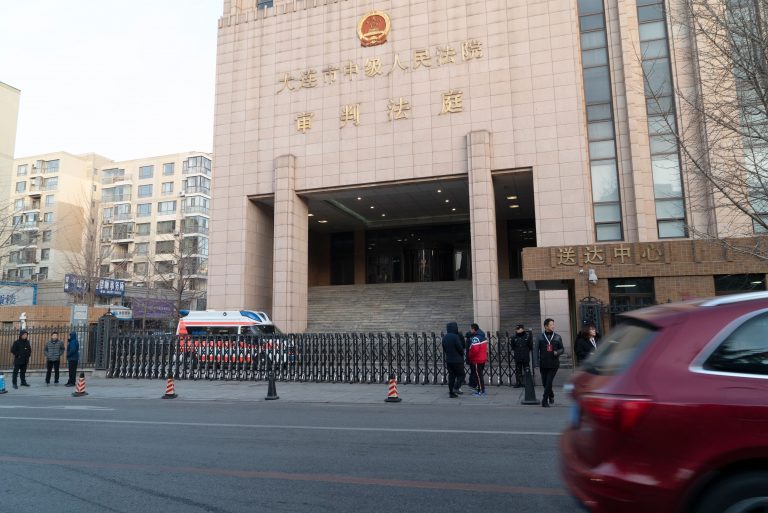Robert Llyod Schellenberg, a Canadian citizen who was convicted in 2018 of drug smuggling in China, has had his appeal denied by the Liaoning High People’s Court resulting in his death sentence being upheld.
The Liaoning High People’s Court said in a statement on Tuesday that “the facts identified in the first trial were clear, the evidence was true and sufficient, the conviction was accurate, the sentence was appropriate.”
Marc Garneau, Canadian Minister of Foreign Affairs said in a statement, “Canada strongly condemns China’s decision to uphold the death penalty sentence against Robert Schellenberg.” adding that, “We have repeatedly expressed to China our firm opposition to this cruel and inhumane punishment and will continue to engage with Chinese officials at the highest levels to grant clemency to Mr. Schellenberg.”
According to the statement by Garneau, Australia, France, Germany and the United States all had representatives present at the court alongside Canadian officials.
Schellenberg is accused of attempting to smuggle 222 kilograms (489.4 pounds) of methamphetamine from a Chinese port city to Australia.
Success
You are now signed up for our newsletter
Success
Check your email to complete sign up
Anyone caught with more than 50 grams or 1.76 ounces of a controlled substance in China can face the death penalty.
Schellenberg, along with an accomplice, allegedly bought tools and tires in an attempt to conceal the drugs prior to shipping them out in containers, according to the prosecution.
The courts alleged that Schellenberg personally inspected the cargo, assessed the workload and decided on a shipping date.
Schellenberg fled Dalian after his accomplice turned himself in and was arrested on December 1, 2014 while attempting to flee to Thailand, the court said.
Schellenberg has maintained his innocence throughout the proceedings and his family remains in close contact with Canadian diplomats in China.
He was first tried in March 2016 and was convicted in November 2018. Initially he was sentenced to 15-years in prison, a sentence that he appealed. A high court then ordered a retrial in late December 2018 after the prosecution said that they had uncovered new evidence proving Schellenberg’s principal role in the drug smuggling scheme.
During a review of Schellenberg’s case, the Liaoning High People’s Court ruled that the original sentence handed down was overly lenient and “obviously inappropriate” and sent the case back to the Dalian Intermediate Court for retrial. A month later Schellenberg was sentenced to death.
In 2019, Canadian Prime Minister Justin Trudeau blasted the ruling accusing China of “arbitrarily” applying the death sentence and referring to the situation as “of extreme concern.”
Worsening diplomatic tensions
Schellenberg’s death sentence comes at a time when China-Canada relations are at an all-time low.
Schellenberg’s treatment, along with other Canadians detained in China, is thought to be part of an escalating diplomatic clash over the arrest of Meng Wanzhou, Huawei CFO, who is under house arrest in the Canadian province of British Columbia and is fighting an extradition order to the United States where she faces charges for suspected violations of Iran sanctions.
It’s estimated that nearly 200 Canadians are currently detained in China for a variety of reasons, many of whom are either out on bail or are serving probation.
Two cases in particular have drawn wide ranging condemnation though; that of Michael Spavor and Michael Kovrig.
Michael Spavor, born in Calgary Alberta, Canada, was arrested in China on charges of endangering state security; charges that have been widely interpreted as retaliation for Canada’s arrest of Meng Wanzhou.
Similarly, Michael Kovrig, a former Canadian diplomat who worked for the International Crisis Group, a pro-peace think tank, was apprehended in December 2018 and was charged with questionable crimes related to espionage.
It’s widely speculated that the two men are imprisoned as part of a hostage diplomacy scheme by the Chinese Communist Party (CCP) with the goal of obtaining the release of Meng Wanzhou.
Chinese courts are expected to rule on Spavor’s charges as early as Wednesday August 11. Little has been said as to when Michael Kovrig’s sentencing will be handed down. According to Safeguard Defenders, a human rights NGO, both men are being held in residential surveillance at a designated location (RSDL) prisons.














